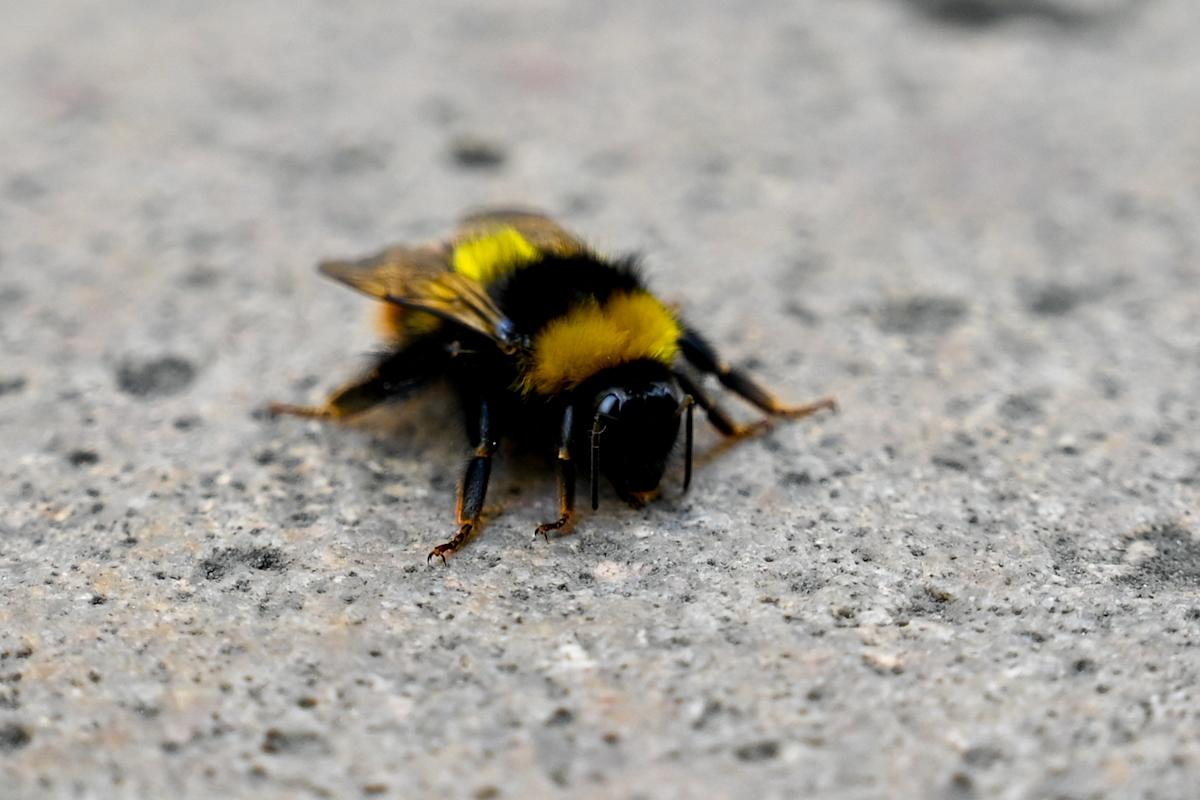You’ve no doubt seen bees buzzing around flowers or even nestling among blades of grass, but when you spot them chilling on the pavement it can raise various questions – not least: “Are they okay?”
Even if they are still alive – the average lifespan of workers is just four to six weeks – bumblebees occasionally end up on the ground for of a variety of reasons.
Amy Ross, a senior ecologist for Kent Wildlife Trust, explains to Yahoo UK why this happens and, more crucially, what you can do to help them.
What type of bees are they?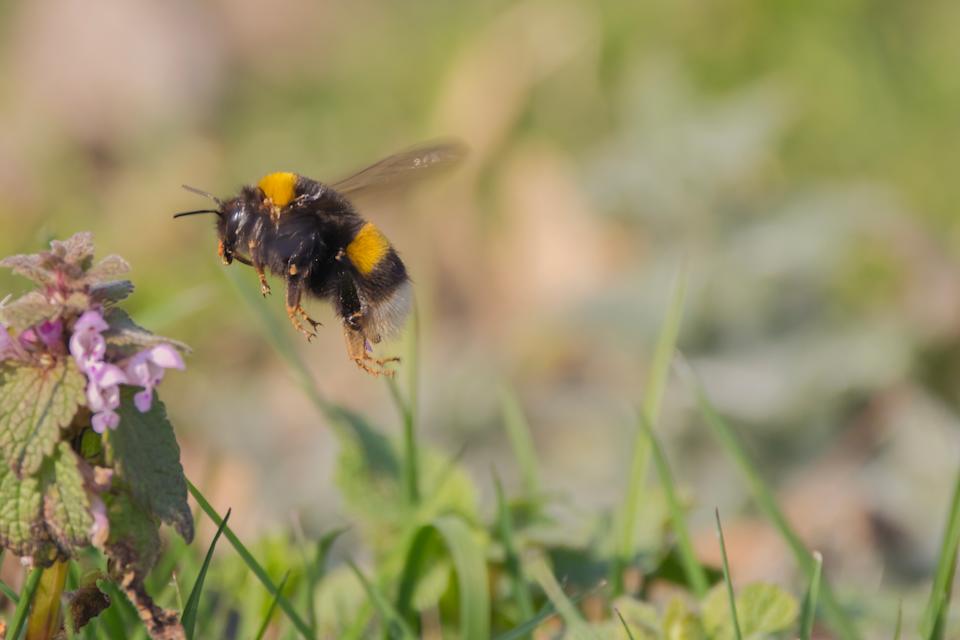
There are more than 250 species of bees native to the UK. (Getty Images)
It’s important to note that there are more than 250 species of bees native to the UK – 24 of which are bumblebees.
Bumblebees can be identified using this helpful chart from the Bumblebee Conservation Trust and are more than likely the kind you’ll spot on the ground.
What’s more, around 70% of the world’s bee species largely lead solitary lives and also nest underground; they do not live in colonies like honeybees.
Why are there bees on the ground?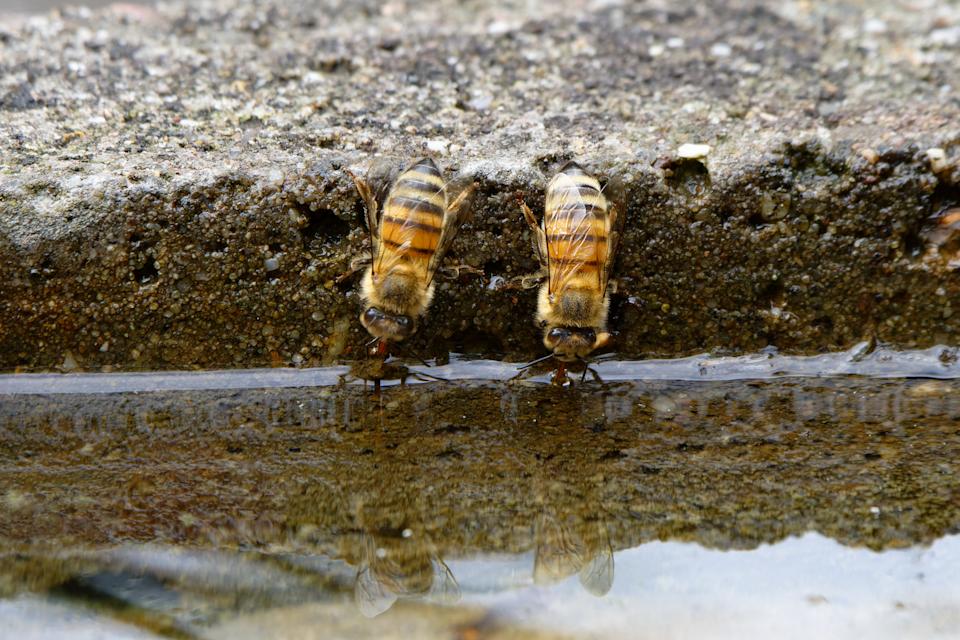
They may be tired (an issue we can all relate to). (Getty Images)
“There can be several different reasons for bees on the ground,” Ross explains. “This could be down to pesticides, but more commonly age or exhaustion will be the main reasons. Workers only live for around four to six weeks and bumblebee nests are only active for a few months of the year.”
She adds that early bumblebees start in March, but begin to die off into July and are the most likely ones seen around this time.
“Many seen on pavements are most likely at the end of their life span,” she says. “In droughts, when flowers are struggling and water is scarce, there may be more bees on the ground.”
What can I do if I see a bee on the ground?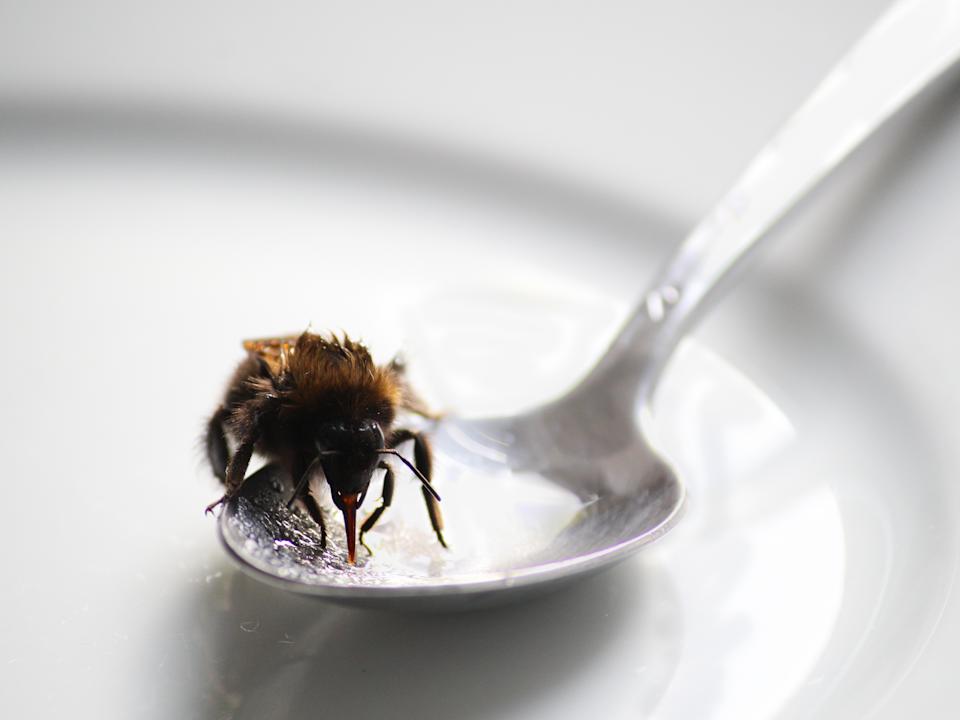
Avoid giving them sugar water, says Ross. (Getty Images)
“If the bee is still moving and in a risky location (i.e. pavements), it is best to move them with a leaf, twig or even clothing,” Ross recommends.
“Moving them to flowers or water nearby and seeing if they will begin to drink can help exhausted bees. Sometimes bees just need to rest for a moment, and moving them from harm’s way is the simplest act anyone can do.”
However, Ross stresses that it is best to avoid giving them sugar water: “It’s not very healthy and doesn’t give all the nutrients a bee needs.”
Why bees are important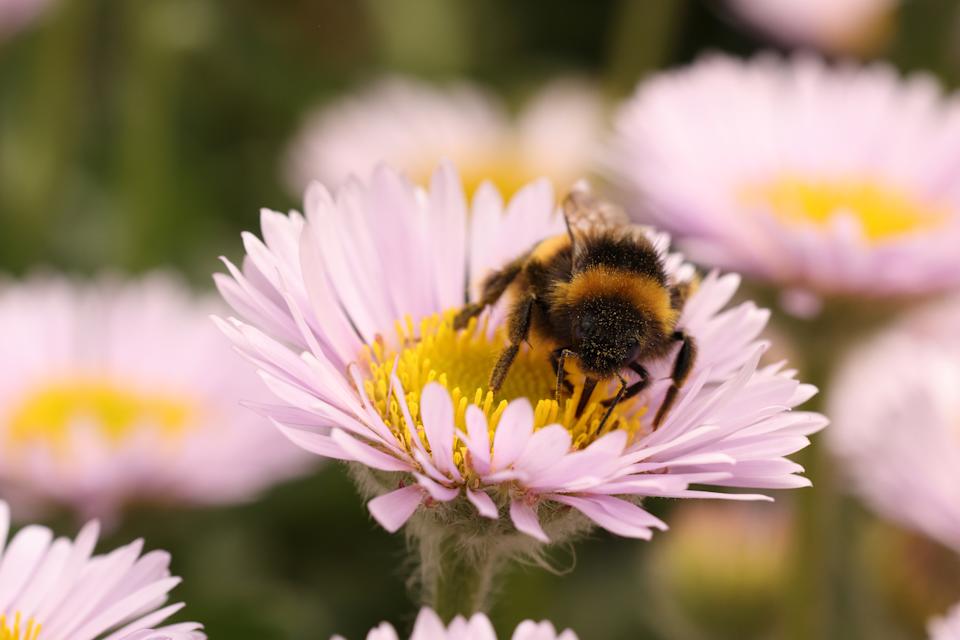
Bees help pollenate crops and flowers, and are a vital part of the ecosystem. (Getty Images)
There are a number of reasons why bees are so key. Not only do they help pollinate food crops and flowers, they feed livestock and prop up our ecosystem – in turn impacting our health and wellbeing.
“It is estimated that it would cost UK farmers around £1.8 billion a year to manually pollinate their crops without bees,” Ross states.
“Additionally, they pollinate people’s gardens and allotments, and are massively important to the environment through this service – ensuring we have a good supply of fruits and vegetables each year. They are also food for many other species as well.”
How else to help bees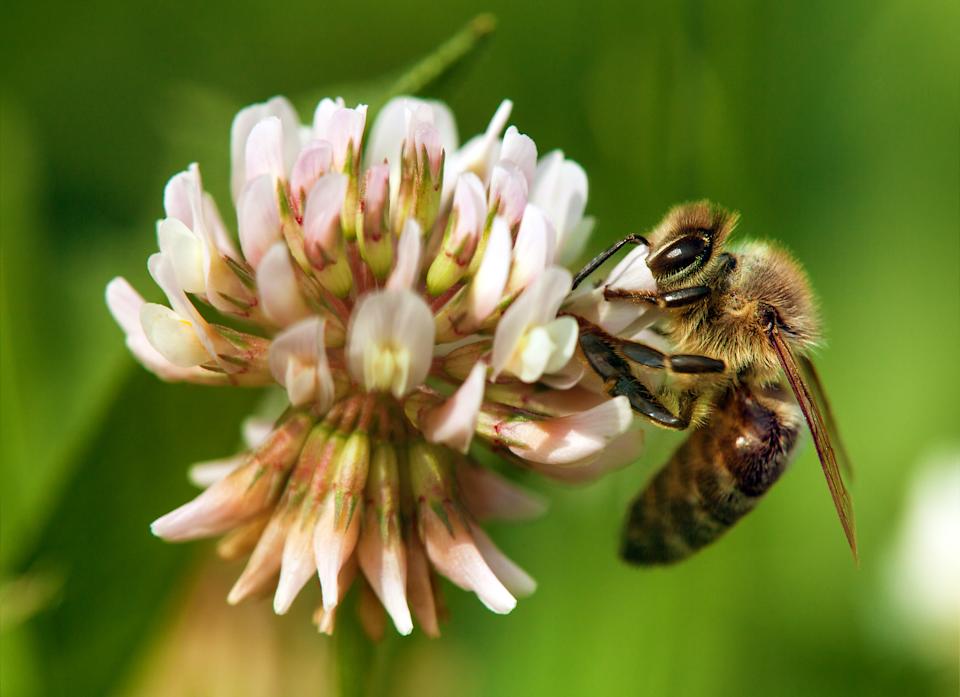
Keep the clover – over and and over. (Getty Images)
Ross says some other measures you can take to help save bees include:
-
Planting native wildflowers, such as vetches – or even growing vegetables and herbs can provide food for bees.
-
Setting up a bee hotel that is at least 10cm deep can support solitary nesting bees. If you find a bumblebee nest in your garden let it be – it will be gone in a few months.
-
Avoid digging gardens over in winter and if you find a hibernating queen bumblebee then put her back and cover her gently with soil.
-
Don’t use pesticides and embrace a “messy” lawn, with all its dandelions and clovers.
Read more about nature and gardening:
